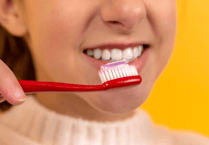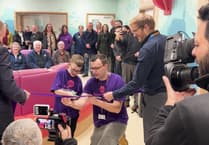RESEARCH from health scientists at the University of Bath analysed the links between breakfast and health for individuals classed as “obese,” comparing the results from a fasting group with a breakfasting group.
Eating breakfast did not make obese individuals lose weight but did result in more physical activity in the morning and reduced food intake later in the day (meaning both groups ate similar amounts overall).
Increasing activity is one of the most important ways to improve health in our increasingly sedentary population, so the researchers suggest this could be a key benefit.
These latest results in this obese group build on previous studies from the researchers at Bath into the effects of eating breakfast for a “lean” population.
The possible links between breakfast, body weight and health was what the researchers wanted to test.
Lead researcher behind the study, Dr James Betts explained: “Despite many people offering opinions about whether or not you should eat breakfast, to date there has been a lack of rigorous scientific evidence showing how, or whether, breakfast might cause changes in our health.
“Our studies highlight some of these impacts, but “how important” breakfast is still really depends on the individual and their own personal goals.
“For example, if weight loss is the key there is little to suggest that just having breakfast or skipping it will matter.
“However, based on other markers of a healthy lifestyle, like being more active or controlling blood sugar levels, then there’s evidence that breakfast may help.”
During the trial the researchers split individuals aged 21 – 60 into two groups “fasting” and “breakfasting’”measuring many outcomes during a six week period.
The breakfasting group in this study was asked to eat at least 700 kcal by 11am, with the first half of this consumed within at least two hours of waking. The fasting group were only allowed water until noon.
Whilst the researchers’ latest work has revealed the effects of eating breakfast verses fasting, they allowed people to choose what they wanted to eat for breakfast.
They now plan to conduct further experiments comparing different breakfast types to look at what kind of food sources and nutrients might work best for health.




Comments
This article has no comments yet. Be the first to leave a comment.